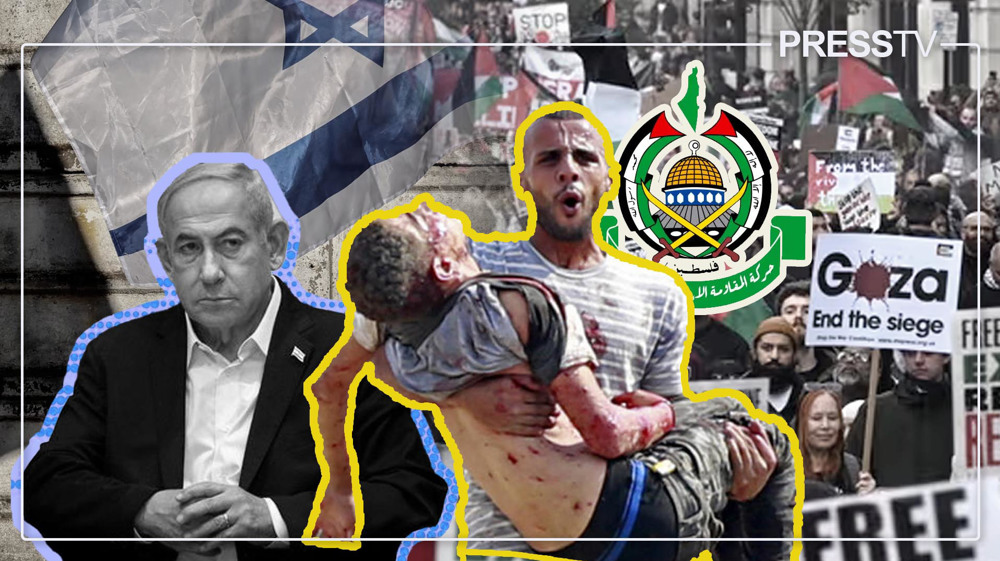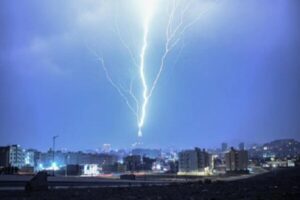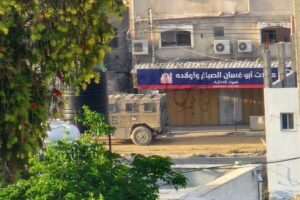By Xavier Villar
The ongoing Zionist genocide in the besieged Gaza Strip in addition to the evident civilian casualties has a discursive aspect to which few, if any, media outlets have paid attention.
The operation launched by the Hamas resistance group on October 7 not only had a significant impact on the Zionist entity from a military perspective but also undermined the Zionist myth of colonial “security” in relation to the colonized.
The fear and anxiety generated by the ‘Al-Aqsa Storm operation (also known as the Al-Aqsa Flood) explains why Zionist authorities, with the aid of Western media, have been trying to build a narrative that seeks to demonize the Palestinian resistance movement.
In line with this propaganda project, they have propagated the traditional discourse on terrorism, this time with the intention of equating Hamas with the Daesh terrorist group.
In this discursive mobilization, the profound differences between the two groups and their distinct political horizons are expectedly not taken into account by Western media outlets.
Nor does this narrative intend to analyze the theological differences between them. A simple internet search would make evident the absolute incompatibility between Hamas and Takfiri Daesh.
There is also no attempt to critically analyze the political foundations on which Daesh is based, which hinders the understanding of its antagonism with respect to Hamas.
In this sense, it is important to note the approach of Daesh Takfiri terrorists has more similarities with the Western epistemology of seeking absolute homogenization through violent methods than with the resistance articulated in an Islamic language that characterizes Hamas.
In other words, while Daesh advocates for a homogenizing project based on Takfirism, Hamas is a Palestinian resistance group that does not frame its decolonization project in such terms.
The discourse on terrorism, which equates Hamas with Daesh, simply aims to portray those Palestinians who challenge Zionism and Western colonialism as uncivilized barbarians.
Once this assimilation is achieved, any effort to resist Zionist colonialism, including demands for respect for international law, can be criminalized and described as complicity with terrorism.
This discourse also underscores that there is no longer a need to seek legal excuses to justify Zionist colonialism. The most severe and unvarnished colonialism is resurging with the normalization of discourse that portrays Palestinians as “animals.”
The resurgence of this unapologetic colonialism can be attributed to Hamas’s recent operation, which has quite rightly generated a sense of victory on the Palestinian side, while on the Zionist side, it has generated a sense of cynicism and shattered the myth of Israeli military invincibility.
The Palestinian slogan “From the River to the Sea” seeks the liberation of all Palestinian territories from the Jordan River to the Mediterranean Sea, and it has shifted from being an ideal to becoming a tangible objective. The long-cherished dream is turning into a reality.
This explains the fear in Tel Aviv to prevent a repetition of what happened on October 7.
With this purpose in mind, the term “terrorism” is once again being sweepingly employed to discredit an anti-colonial movement that threatens the survival of the illegitimate Zionist entity.
It is necessary to point out that the term “terrorism” is not merely descriptive but has a prescriptive character. In other words, it aims to create what it purports to describe.
When something is labeled as terrorism, the ultimate result is to give the green light to repress, limit dissent, violate civil liberties, torture, detain, deport, invade, bomb, kill, and carry out a range of diabolic actions, all in the name of a perceived threat called “terrorism” that is accepted as such.
From a discursive perspective, the term “terrorism” serves as a means to stigmatize “the savage” and perpetuate the dichotomy between civilization and barbarism.
It is used to marginalize individuals, groups of people, and even ideas, excluding them from the human community or human family. Consequently, they are perceived as a threat to the human community, and as a result, it is deemed necessary to eliminate them.
The Zionist discourse, particularly the attempt to equate Hamas with Daesh, represents a constant effort to consolidate the illegal occupation and apartheid by normalizing the abnormal.
Therefore, what underlies this new Zionist discursive appropriation of Palestine is the attempt to delegitimize not only Hamas but the entire Palestinian anti-colonial resistance.
Xavier Villar is Ph.D. in Islamic studies and researcher who divides his time between Spain and Iran
(The views expressed in this article do not necessarily reflect those of Press TV.)




